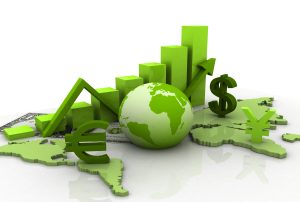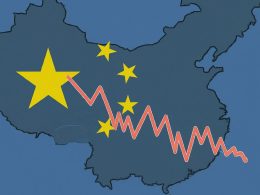Introduction:
As an economist dedicated to sustainable development, I have analyzed the critical intersection of economic policies and their impact on achieving sustainable goals. This article delves into the essential economic policies needed to foster sustainable development, balancing environmental conservation, social equity, and economic growth for a prosperous future.
1. Defining Sustainable Development
Begin by defining sustainable development and its pillars: economic growth, social inclusion, and environmental protection. Discuss the interconnectedness of these elements and the importance of long-term planning.
2. Green Economy and Circular Economy Strategies

Explore the transition towards a green economy and circular economy strategies. Discuss policies that promote resource efficiency, renewable energy adoption, waste reduction, and sustainable consumption and production patterns.
3. Investment in Renewable Energy and Infrastructure
Examine the role of investment in renewable energy and sustainable infrastructure. Highlight policies that incentivize clean energy technologies, improve energy efficiency, and develop resilient infrastructure to mitigate climate change impacts.
4. Carbon Pricing and Environmental Regulations
Discuss the implementation of carbon pricing mechanisms and stringent environmental regulations. Analyze their effectiveness in reducing carbon emissions, fostering innovation in clean technologies, and encouraging industries to adopt sustainable practices.
5. Social Policies for Inclusive Growth
Address social policies that promote inclusive growth and reduce inequalities. Explore strategies such as universal healthcare, education reform, gender equality initiatives, and social protection programs to ensure equitable distribution of economic benefits.
6. Sustainable Agriculture and Food Security
Examine policies for promoting sustainable agriculture and ensuring food security. Discuss initiatives that support organic farming, agroecological practices, water management, and resilient agricultural systems to enhance food production while conserving natural resources.
7. Education and Skills Development
Highlight the importance of education and skills development in achieving sustainable development goals. Discuss policies that promote environmental literacy, vocational training for green jobs, and entrepreneurship in sustainable sectors.
8. Public-Private Partnerships and Innovation
Discuss the role of public-private partnerships (PPPs) and innovation in driving sustainable development. Explore policies that facilitate collaboration between government, businesses, and civil society to accelerate sustainable innovations and scale up impactful projects.
9. Global Cooperation and Sustainable Trade
Examine the importance of global cooperation and sustainable trade practices. Discuss policies that promote fair trade, reduce trade barriers for sustainable products, and uphold environmental and labor standards in international trade agreements.
10. Monitoring and Evaluation Frameworks
Conclude with the importance of monitoring and evaluation frameworks for assessing the effectiveness of economic policies for sustainable development. Highlight the need for data-driven decision-making, transparency, and accountability in achieving sustainable development goals.
Informative Table: Key Economic Policies for Sustainable Development
| Policy Area | Description | Examples |
| Green Economy | Promoting sustainable practices in economic activities | Renewable energy subsidies, eco-labeling |
| Circular Economy | Minimizing waste and maximizing resource efficiency | Recycling incentives, product lifecycle assessment |
| Renewable Energy Investment | Supporting clean energy technologies and infrastructure | Solar and wind power investments |
| Carbon Pricing | Taxing carbon emissions to incentivize cleaner technologies | Carbon tax, cap-and-trade systems |
| Social Inclusion Policies | Reducing inequalities and ensuring equitable access | Universal healthcare, social safety nets |
| Sustainable Agriculture | Promoting eco-friendly farming practices | Organic farming subsidies, water conservation |
| Education for Sustainability | Enhancing environmental awareness and skills | Environmental education in schools, green job training |
| Public-Private Partnerships | Collaborating for sustainable innovations | Joint ventures for green projects, technology partnerships |
| Sustainable Trade Practices | Integrating environmental and social criteria | Fair trade certification, sustainable supply chains |
| Monitoring and Evaluation | Assessing policy effectiveness and impact | Sustainable development indicators, performance metrics |
Comparative Table: Goals vs. Implementation Challenges in Sustainable Development
| Goal | Implementation Challenge | Strategy |
| Environmental Conservation | Resistance from vested interests in fossil fuels | Incentivizing transition to clean energy |
| Social Equity | Lack of funding for social welfare programs | Allocating budget priorities for social policies |
| Economic Growth | Economic downturn affecting green investments | Stimulating green sectors through fiscal policies |
| Global Cooperation | Disparate national priorities hindering agreements | Diplomatic efforts to align sustainability goals |
Conclusion: Toward a Sustainable Future
Effective economic policies are crucial in steering societies towards sustainable development, balancing economic prosperity with environmental stewardship and social equity. By implementing robust policies that promote green technologies, equitable growth, and global cooperation, nations can pave the way for a sustainable future that meets the needs of present and future generations. Continuous monitoring, adaptation to emerging challenges, and global collaboration will be essential in achieving sustainable development goals and ensuring a prosperous and resilient world for all.










